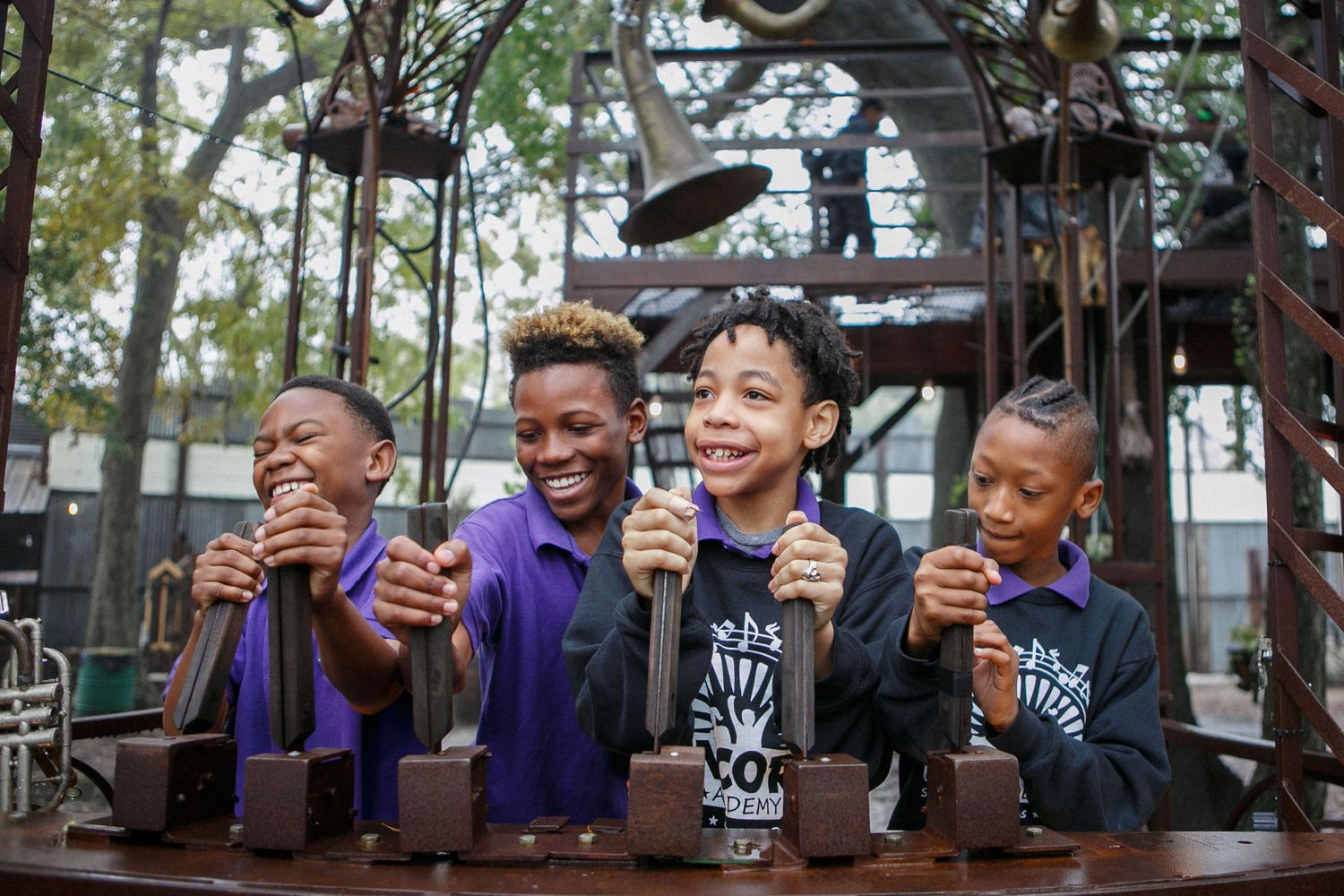
Expanding Musical Opportunities for Children

Yutaka Kikugawa. Photo © Aiko Suzuki.
It’s been a decade since we launched the first El Sistema–inspired program in Japan, in the city of Soma, Fukushima Province. Our goal was to offer support, community, and dignity to the children affected by the 2011 tsunami and nuclear accident. Our vision statement at that time was: “Community regenerated by children with life skills through music.”
Since then, we’ve learned a great deal about the needs of the children we serve and the primary outcomes we want to be aiming at. Accordingly, we’ve reshaped the vision statement as follows: “Collaborative society where everyone can be free and creative.” This widened vision encompasses our core values as we currently see them: joy, care, dignity, artistry, and responsibility.
Collective music-making and peer learning in ensembles such as orchestra and choir are among the fundamental distinguishing aspects of the El Sistema model. And there’s no doubt that when children engage in ensemble exercises, playing and singing together, they acquire valuable life skills such as assertiveness, tact, communication, and teamwork.
However, it is apparent to us that this approach may not be suitable for every child. We’ve come to realize that while some children excel in group settings, others prefer individual pursuits and may hesitate to engage with peers. Additionally, children with autism or learning difficulties may find it challenging to focus on group activities and maintain attention for extended periods.
Like many in our worldwide field, we acknowledge and celebrate this diversity, and we are committed to fostering a more inclusive and supportive environment within our orchestra and choir groups. Our goal is to ensure that every member feels cared for and respected. And we recognize the significant challenges inherent in providing additional support to those with special needs, during ensemble sessions that are focused on creating harmony among members.
One of our responses to this complex challenge is the El Sistema Composition Workshop we’ve held in various locations across Japan since 2013. The workshop, supervised by the world-renowned composer and pedagogue Dai Fujikura, is unique in its approach. Students are seated at tables in a large room—some children sitting by themselves, others in small groups, as they choose. There’s nothing on the tables but blank paper and pencils. In each session, Fujikura introduces a guest musician/colleague, instrument in hand, and talks to the students about the dynamic range and sonic qualities of that particular instrument. The musician is invited to demonstrate sounds and to communicate with the students through music, without imposing traditional teaching methods.
Then the children—regardless of their prior musical experience—are invited to use their papers and pencils to compose freely for that instrument, without assistance from Dai. They work individually, and they create musical “scores” in whatever ways work for them. The only rules are: 1) children should feel free to respond as they choose and should not be forced to do anything (including composition), and 2) children should not be evaluated for their work.

Remarkably, most children simply begin to compose. If they have the skill of musical notation, they use some version of that; if they don’t, they create the notation system they need to express themselves musically. The guest musicians answer questions about the sounds of the instrument, and try playing the musical sounds the children have notated so that the child can compare the actual sound with the sound they’ve imagined. They also spend time working individually with children who have trouble concentrating. If a child struggles and gives up, or resists the activity, we observe our fundamental Rule No. 1 and refrain from intervening.
Effective communication between young composers and guest musicians is crucial for this process. Despite the vast compositional variety that results, these world-class musicians are capable of performing any piece, thanks to their exceptional listening skills and imagination. (In one workshop, we showcased the unique notation techniques used by Oliver Messiaen. Many of the young participants became highly intrigued by Messiaen’s notation, which influenced their compositions. This sparked a playful jealousy in Dai, leading to laughter among us all.)
Fittingly, Fujikura refers to his practice as “Born Creative.” The children’s curiosity about unconventional sounds and their interest in exploring new musical concepts often leave Fujikura and the renowned guest performers astonished. This is a place where the power of music transcends language and where the endless potential of children is strongly felt. Through the combination of individual notational creativity and voluntary collaborative activity, children experience a space of non-judgmental trial and error as they weave their unique compositions. Their eyes sparkle with creativity and joy as they craft their own music in the world.
For more information, enjoy the following videos:
- Dai Fujikura’s interview at La Maison de la Musique Contemporaine, France
- El Sistema Japan Composition workshop, 2015, with flautist Claire Chase
- El Sistema Japan Composition Workshop in Yomitan village, Okinawa in 2022
Related Content
All Regions, Community Building, Editorials, Gather Together, Opinion, Perspectives & Collective Action, Professional Development, Program Design, Student Voice & Leadership, Teaching & Learning, the ensemble
EDITORIAL
Musical Benchmarks Build Equity
Patrick Scafidi
All Regions, Collaborations, Community Building, Events/Performances, Gather Together, News and Resources, North America, Professional Development
New ESUSA Opportunities & Events
Patrick Scafidi
Collaborations, Community Building, Featured, Gather Together, New Orleans, North America, Perspectives & Collective Action, Student Voice & Leadership

The Importance of Free Play in Music Education
Patrick Scafidi


